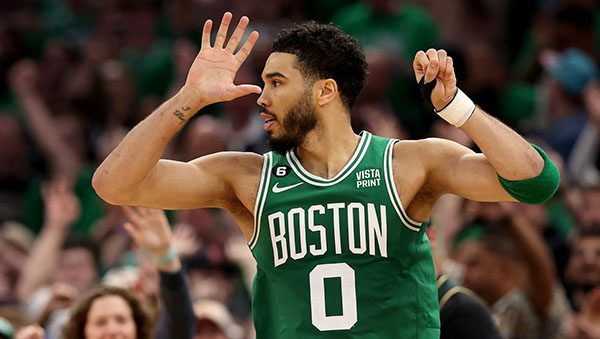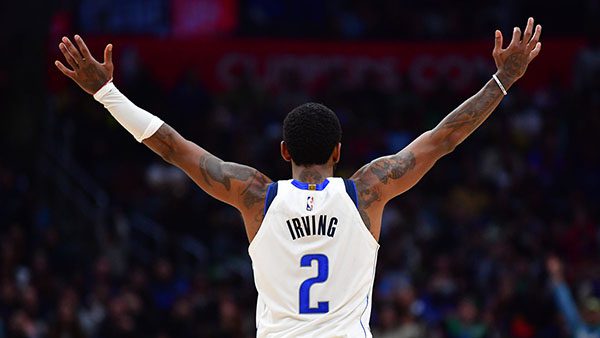Name: Muhammad Ali (Born as Cassius Marcellus Clay Jr.)
Nickname: The Louisville Lip, The Greatest
Born: January 17, 1942
From: Louisville, Kentucky
Weight Class: Heavyweight
Professional Record: 56 wins, 5 losses, 37 knockouts
Retired: 1981
Famous Quotes:
I’m the greatest.
Sonny Liston is too ugly to be champ.
Float like a butterfly, sting like a bee.
Its hard to be humble when youre as great as I am.
Im so fast that last night I turned off the light switch and was in bed before the room was dark.
Background and Early Career
Cassius Marcellus Clay, Jr. was born in Louisville in 1942. His background was not typical of many boxers, as he was brought up in a middle-class family. After another boy stole his bike, he went to a gym to learn boxing. His talent became unmistakable, as he began racking up amateur titles. At 18, he won a berth on the 1960 Olympic team. Boxing as a light heavyweight, he stormed through his opponents impressivelywinning the gold medal.
BET ON BOXING MATCHES USING YOUR CREDIT CARD AT ONE OF THE WEB’S
BIGGEST ONLINE BOOKIES: BOVADA
He turned pro as a heavyweight under the tutelage of guru Angelo Dundee. Clay began racking up victories and creating a buzz with his fast fists and even faster mouth. This was the early-60; so much of the public was taken aback by the hyper-confident fighter. He began predicting the round in which he would knock out his opponent. In addition, his tactics in the ring were flamboyantconstantly chattering away at his opponent, interacting with the audience, and shuffling his feet in a rapid-fire motion just for kicks.
His rise to the top was meteoric, but not without difficulty. He tasted the canvas against Sonny Banks, barely decisioned Doug Jones, and was put down hard by a Henry Cooper left hook before rallying to win. He would be a tremendous underdog in his next fight.

The Heavyweight Title
Sonny Liston was a fearsome heavyweight championa hulking and surly ex-con with scary connections and an even more frightening arsenal of punches. His jab was stronger than most heavyweights power shots, and he could take you out with one shot from either hand. The then-Cassius Clay was an 8-1 underdog, but created a buzz with his over-the-top antics going into the fight. He would show up at Listons training camp to challenge him, while slandering him constantly in the press.
Ali frustrated Liston from the beginning with his otherworldly speed. The coordination, quickness, and sheer athleticism of Ali were, and still are, very unusual for a heavyweight. Liston struggled to find answers, leading to someone in his corner lacing his gloves with astringent before the 4th round. He smeared the irritant in Clays eyes, blinding him in the process. Liston battered Clay in the 4th round, forcing his young and frazzled opponent to demand Angelo Dundee cut off his gloves in between rounds. Dundee told Ali to run, which he did until his visionand dominancereturned. Liston failed to answer the bell for the 7th round, crowning a new champion who exclaimed, I shook up the world!
From Cassius Clay to Muhammad Ali
After winning the title, Clay changed his name to Muhammad Ali and announced he was a member of the Nation of Islam. This created great furor, as the owner of the biggest title in sports aligned himself with an anti-establishment group. Ali was a vocal sounding board for the Nation of Islam, becoming a controversial and polarizing figure. The establishment was not used to such outspoken and political African-American celebrities. Nevertheless, he became a focal figure in the supercharged civil rights movement of the 1960s.
First Title Reign
The rematch with Liston was shrouded in controversy. Ali hit the normally durable Liston with what appeared to be a light right hand in the 1st round, flooring the ex-champion for a ten-count. Many believe the fight was fixed, while others maintain the punch was deceivingly lethal and legitimate. Well probably never know for sure. What we do know is that this period was Alis finest, as he cut through his challengers with a combination of speed, agility, and punching power that had previously not been seen in the ring. Ali made 9 defenses of his title. By 1967, he was in his absolute prime.
Vietnam
Upon refusing induction into the armed forces to go to Vietnam, Ali was stripped of his title and boxing license, forcing him into a 3-year exile. His forced expulsion from the ring robbed Ali of his reputation, fortune, and fighting prime. As time wore on, however, and the Vietnam War became very unpopular, Ali became somewhat of a folk hero.
Ali II
When Ali returned to the ring in 1970, it was obvious that he had changed. Gone were the lightning-quick reflexes, the quick feet, and the off-the-charts energy level. He was older and more stationary, unable to glide around the ring. He still had the magic, though, and beat good fighters Jerry Quarry and Oscar Bonavena before challenging new champion Smokin Joe Frazier.
Frazier-Ali I was a mega-event for the ages. In a pulsating fight, Frazier fought better than he ever had before or since, dropping Ali in the 15th before winning a decision. It was Alis first loss. He bounced back like a champion, winning 10 in a row, including wins over good fighters such as Jimmy Ellis, Buster Mathis, George Chuvalo, Jerry Quarry (again), Floyd Patterson, Bob Foster, and Joe Bugner. But when unheralded Ken Norton broke his jaw and beat him over 12 rounds in 1973, there were many of those who felt Ali had reached his end.
Rumble in the Jungle
During this time, George Foreman had brutalized Joe Frazier to win the title. Ali got back into the picture with a narrow rematch points win over Norton, and a rematch win over deposed champ Joe Frazier. This set him up for a quixotic title try against Foreman. Big George had just obliterated both Frazier and Norton and was a gigantic favorite to do the same to Ali. People were actually fearful for Alis health. It was somewhat reminiscent of how Alis chances were viewed against Listonanother seemingly invincible wrecking-ball champion who was tearing through all his opponents.
In a surreal atmosphere in Zaire, Ali employed his new rope-a-dope technique, where he allowed Foreman to tire out by banging away on Alis arms and body, while lashing out with sharp counters from time to time. Foreman became increasingly dispirited as he hammered away fruitlessly at Ali round after round. After breaking Foreman down mentally, Ali struck with a series of lightning jolts that put Foreman down and out in the 8th round. It was an upset for the ages!
Heavyweight Champion, Part Two
Ali had by now achieved legendary status. He was the most revered and recognized man on Earth. The transformation was striking. In the 1960s, he was a prodigiously gifted, but not particularly well-liked champion. In the 1970s, he was loved by most, but had become vulnerable. He relied on his toughness and smarts more than his physicality. He also made the unfortunate discovery that he could take a punch better than anyone, a trait that would cost him the end.
It is a testament to Alis inner resource that he was able to hypnotize his past-peak body through 10 more title defenses, but the reign was tough on Ali. He often soldiered through tremendous physical punishment to beat such noted fighters as Ron Lyle, Ken Norton (again), and Earnie Shavers. The most brutal of these bouts was the famed Thrilla in Manila, a rubber match against Joe Frazier. Both men hammered each other to the brink of destruction, until the horribly battered Frazier was kept on his stool for the beginning of the 15th round. Neither man would ever be the same. It would have been the perfect time for Ali to retire from the ring.
Ali kept defending his belt, until running into Leon Spinks in 1978. The 7-fight novice out-hustled a flat Ali to win the title. Ali won the rematch, winning the title for a then-unprecedented third time. He wisely retired, only to be drawn back into action two years later to fight new champion Larry Holmes. In a gut-wrenching bout, Holmes battered Ali into submission in the 11th round. Ali came back again to lose a decision to contender Trevor Berbick in 1981, before finally hanging them up at 39.
Final Thoughts
Ali wants no one to feel sorry for him. Some remain rightfully bitter that boxings greatest figure was chewed up and spit out by the very sport he elevated. It seems easy now to say that the powers-that-be should have put a stop to Alis career when it became clear that his speech was slurred and his faculties were compromised. True enough, but Ali was dead-set on doing it his way. The Holmes fight, though, should never have happened. When you watch footage of Ali training for that fight, it becomes obvious that someone should have intervened. He couldnt hit the speed bag and was boxing poorly against his sparring partners. Then, to let him take another fight after being destroyed by Holmes was pure lunacy. Such is the nature of this brutal sport. If you dont time your exit just right, it could end up costing you big time.
In 1999, Sports Illustrated named Muhammad Ali the Sportsman of the
Century, a fitting tribute to a man who transcended boxing and celebrity.
Ali defines greatness. He dazzled with his boxing ability, but lifted his
legacy into the top pantheon by overcoming insurmountable odds to win against
the best and by sacrificing everything for his beliefs.








